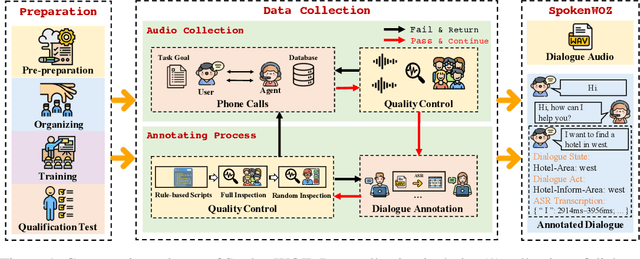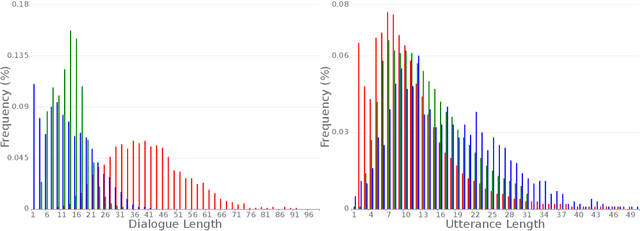SpokenWOZ: A Large-Scale Speech-Text Benchmark for Spoken Task-Oriented Dialogue in Multiple Domains
Paper and Code
May 22, 2023



Task-oriented dialogue (TOD) models have great progress in the past few years. However, these studies primarily focus on datasets written by annotators, which has resulted in a gap between academic research and more realistic spoken conversation scenarios. While a few small-scale spoken TOD datasets are proposed to address robustness issues, e.g., ASR errors, they fail to identify the unique challenges in spoken conversation. To tackle the limitations, we introduce SpokenWOZ, a large-scale speech-text dataset for spoken TOD, which consists of 8 domains, 203k turns, 5.7k dialogues and 249 hours of audios from human-to-human spoken conversations. SpokenWOZ incorporates common spoken characteristics such as word-by-word processing and commonsense reasoning. We also present cross-turn slot and reasoning slot detection as new challenges based on the spoken linguistic phenomena. We conduct comprehensive experiments on various models, including text-modal baselines, newly proposed dual-modal baselines and LLMs. The results show the current models still has substantial areas for improvement in spoken conversation, including fine-tuned models and LLMs, i.e., ChatGPT.
 Add to Chrome
Add to Chrome Add to Firefox
Add to Firefox Add to Edge
Add to Edge